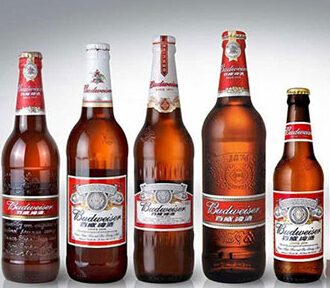As tastes rapidly change, Chinese consumers are swapping mass-produced local beers for imports and local craft beers.
中国消费者的口味迅速变化,他们正在从大规模生产的本地啤酒转向国内外的精酿啤酒。
It is the type of opportunity that is at the heart of Anheuser-Busch InBev's $106 billion deal to buy SABMiller, its rival global brewer. While major markets in Europe and the United States have been sluggish, developing markets like China offer a growing customer base and the potential for a stronger profit.
百威英博斥资1060亿美元收购对手南非米勒啤酒公司,就是看准了这样的机遇。虽然在欧美主要市场一直低迷,但像中国这样的发展中市场为他们提供了不断扩大的顾客群和较强的盈利潜力。

The Chinese middle class is swelling with young, affluent professionals who are more willing to spend money on brands and who are experienced travelers looking for a taste of other countries back home. And in China, most beer is still considered affordable. So sales have held up relatively well even as wine, the Chinese spirit baijiu and other more expensive liquors have been hit by the country's anticorruption crackdown and the slowing economy.
中国中产阶级的规模正在蓬勃壮大,年轻富裕的专业人士更愿意把钱花在品牌上,经验丰富的旅行者回到国内后也想追寻其他国家的滋味。而在中国,人们仍然认为大多数啤酒的价格很亲民。因此,虽然像葡萄酒、白酒和其他比较昂贵的酒类受到了中国反腐行动和经济放缓的冲击,但啤酒的销售形势相对较好。
"It's an escape route from maturity in the West," said Spiros Malandrakis, a senior analyst of alcoholic drinks at the research firm Euromonitor International, referring to the established markets of the United States and Europe.
"这是逃离西方成熟市场的一条出路,"酒精饮料研究机构欧睿国际的高级分析师斯皮罗斯·马兰拉基思(Spiros Malandrakis)说,他指的是美国和欧洲的成熟市场。
In China, Anheuser-Busch InBev and SABMiller are betting on premium products.
在中国,百威英博和南非米勒把赌注押在了高端产品上。
The two beer behemoths were among the first international entrants into China in the 1990s and initially teamed with local brewers. At the time, domestic breweries produced beer of inconsistent quality, but they were quickly multiplying, and consumption was soaring along with disposable incomes.
这两家啤酒巨头都属于1990年代进入中国,与本地酿酒商合作的第一批跨国公司。当时,中国国内的酿酒厂生产的啤酒质量很不稳定,但产量很快就成倍增长,销量也随着民众可支配收入的提高而飙升。












